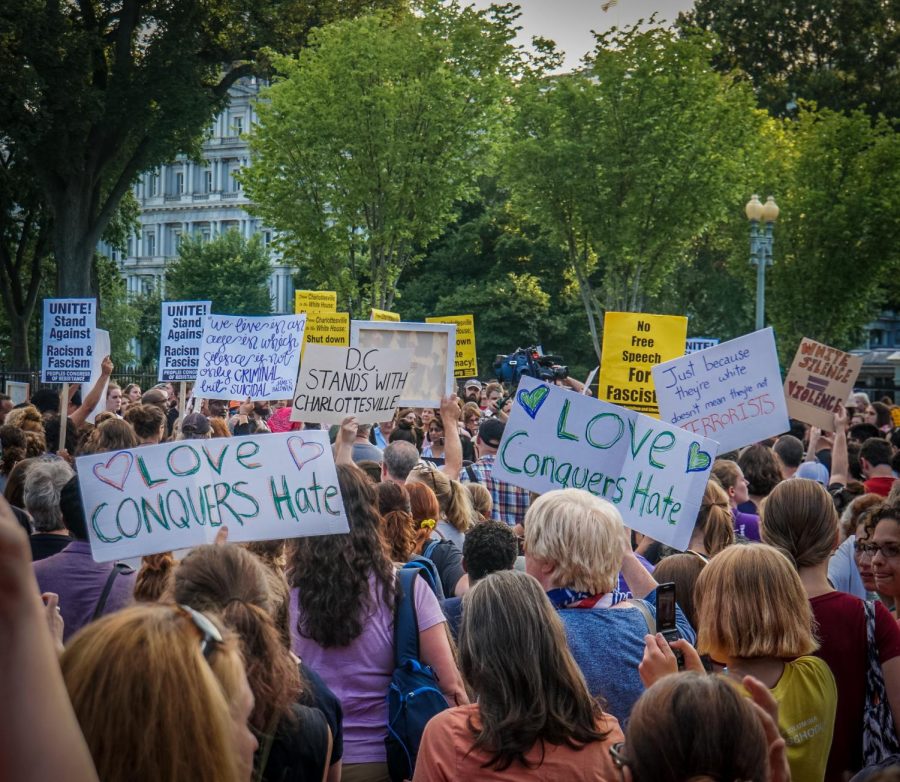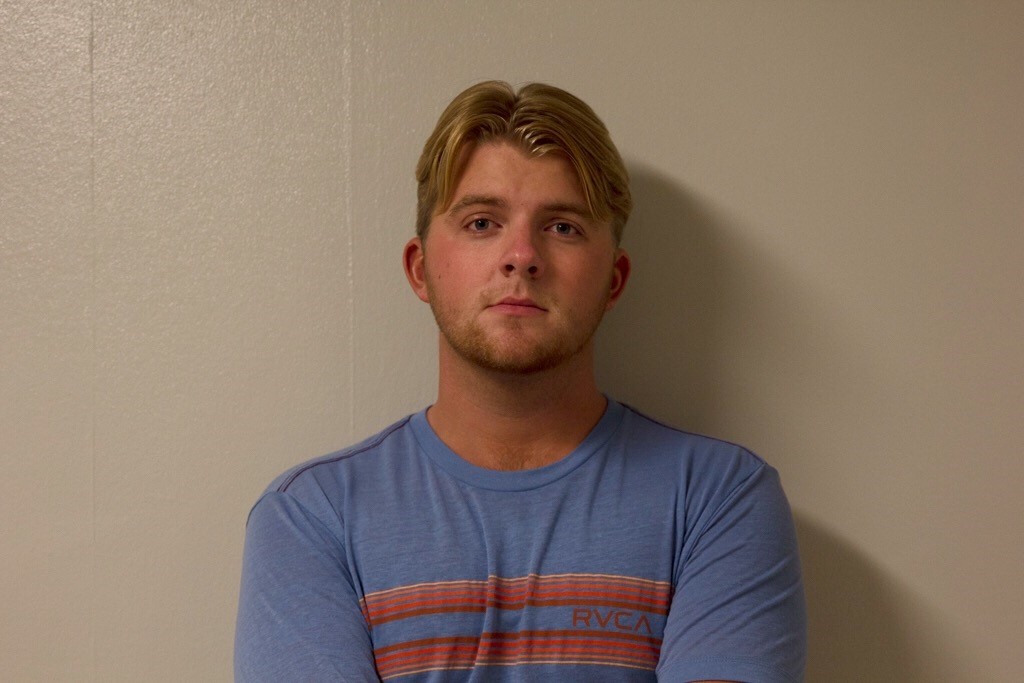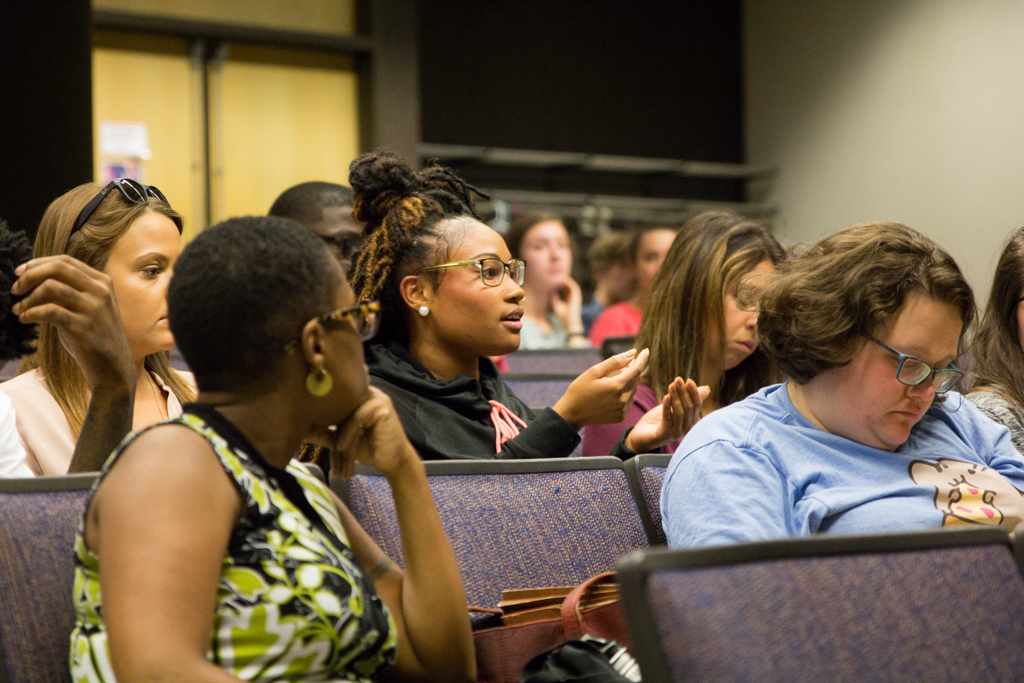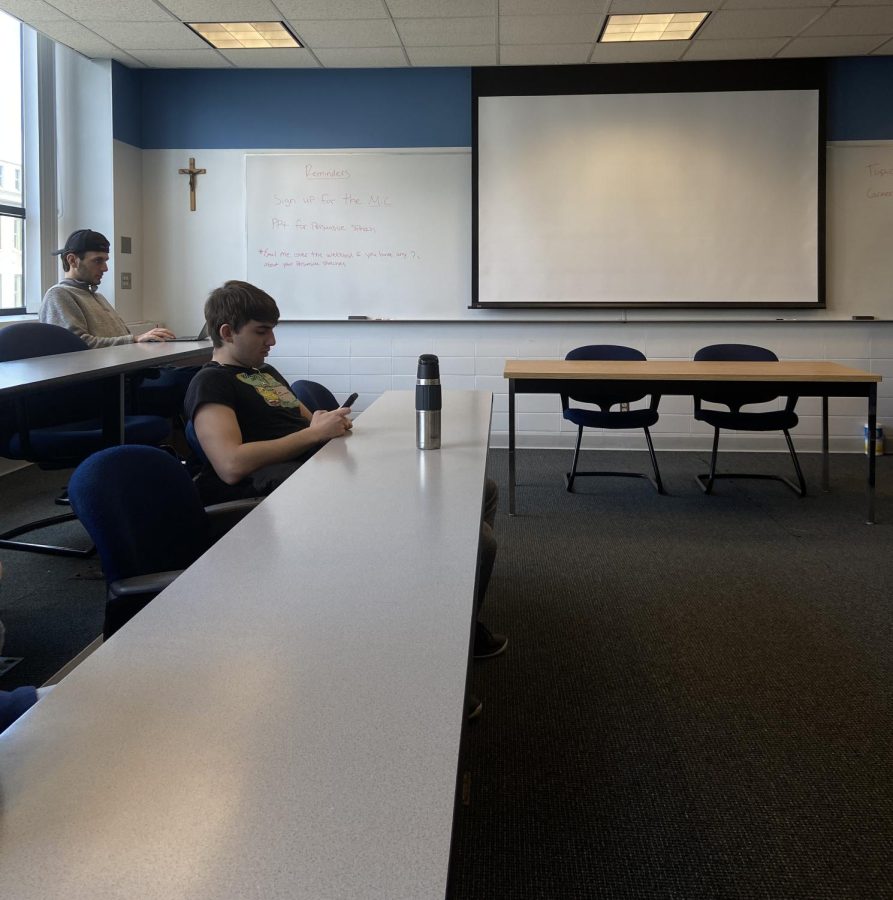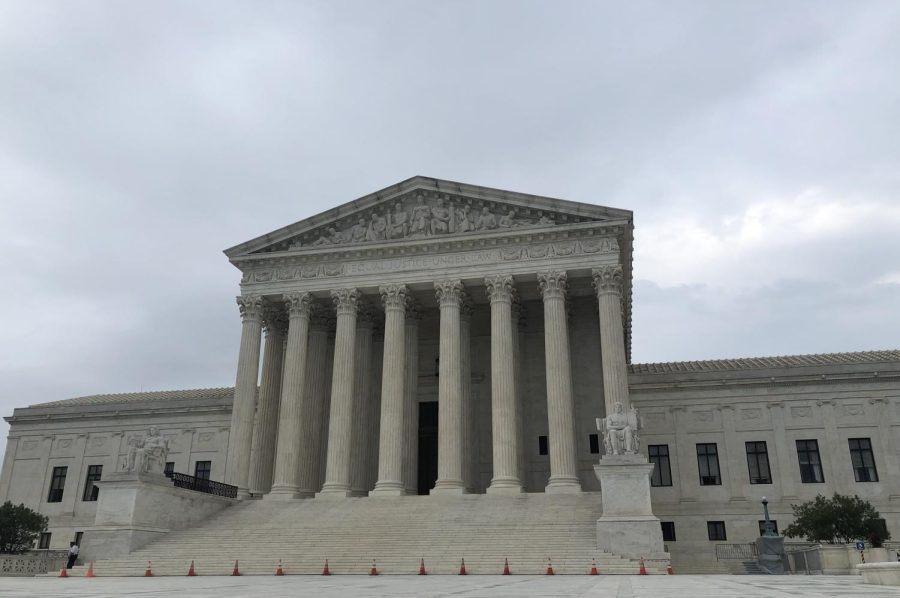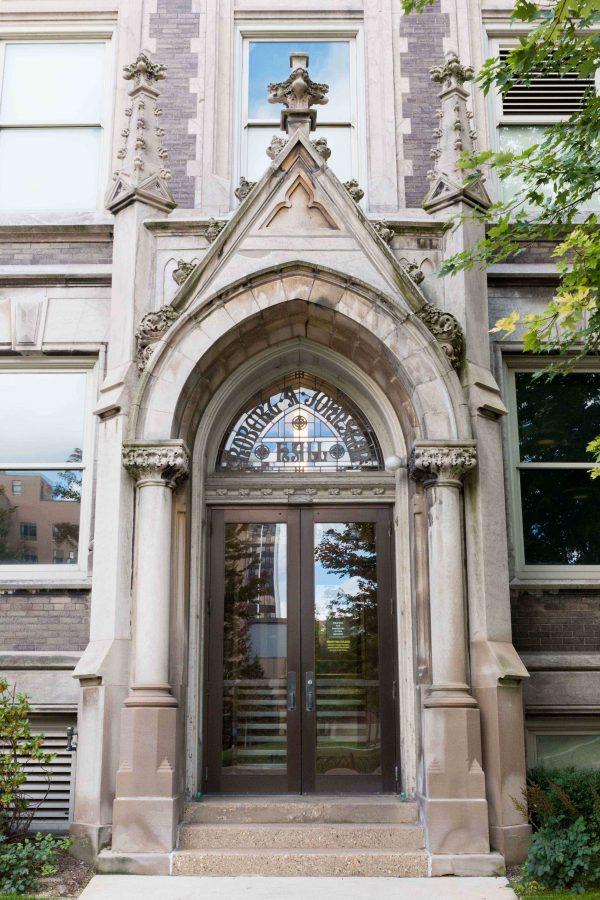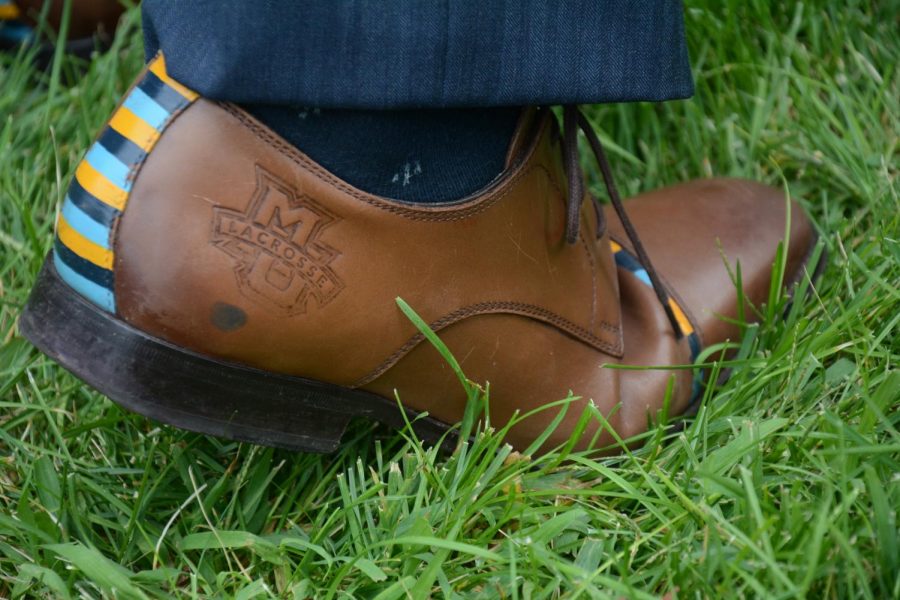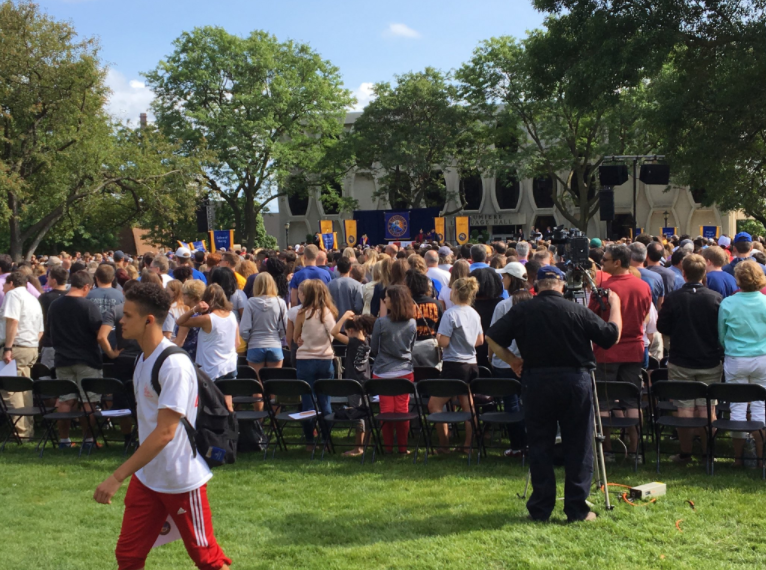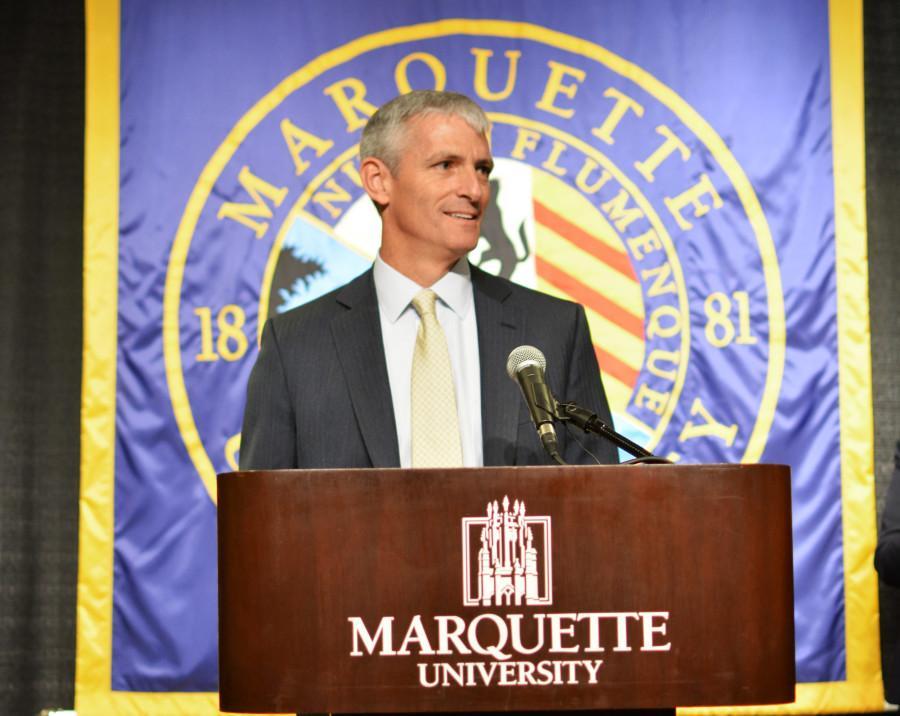Universities were quick to issue statements condemning the violence that occurred in Charlottesville earlier this month, reaffirming student safety on campuses. However, some statements fell short, doing little in the way of action or in the way of pointed denouncements of white supremacist ideology.
The Unite the Right rally held at the University of Virginia created a conversation about the role of universities in affecting social change. The rally, held initially as a protest against the removal of a statue of Confederate General Robert E. Lee and led by an organization criticized for its white supremacist ideology, turned violent when someone among the Unite the Right organization ran a car into a crowd of protestors, killing one and injuring dozens more.
UW-Stevens Point released two paragraphs responding to the incident, while on the other side of the spectrum, UW-Madison issued a lengthy statement with the city’s mayor promising the removal of confederate monuments from public spaces.
Marquette is not immune to, or unfamiliar with, contention. The university has had to acknowledge issues of free speech, diversity, inclusion and sexual violence advocacy in the last several years. Threatening as each of these accusations are to an institution’s reputation, addressing injustice head-on is the only acceptable route for university administration.
Following the violence, Vice President of Student Affairs at Marquette, Dr. Xavier Cole, penned a personal letter about his mother’s activism during the 1960s. University President Lovell followed this with a letter of his own. Both statements promised safety and inclusion on campus, and both encouraged students to reflect upon their Jesuit educations and act accordingly.
While some students have praised Marquette’s response, others have expressed dissatisfaction, calling for more from university leadership. A current Marquette student penned a letter with a list of demands for Lovell and other leadership: Updated curriculum in favor of diversity education, funding of multicultural student organizations and designated spaces for minority groups on campus among them.
This is not the first time students have called administration out for exclusionary practices. In 2015, four students were arrested on campus during a solidarity march calling for similar changes to curriculum and campus culture.
While institutions can never do enough to promote diversity and inclusion, it is important to recognize that Marquette has made great strides in recent years. Lovell’s task force for diversity and inclusion, the initiative to make Marquette a Hispanic Serving Institution and the incorporation of gender-neutral bathrooms are only some of the steps the university has taken to promote inclusion.
There is certainly more to be done, but Lovell made it clear in his letter that where and how an institution stands in times of challenge determines its integrity. Hopefully, this is a promise of action.
Students, staff and faculty must each play their own part in dismantling an unjust status quo, but without the direct and intentional support of the institutions upon which that status quo was built, tangible change will be a difficult task.
As Cole said, there is no time for equivocation. It is not about being on the right side of history, it is about doing the right thing because it is our nature to do so.
We should be grateful to attend a school that is ardent in its intolerance of racism and bigotry, but we should not be content with just words. Standing against hatred means doing more than writing a letter.

